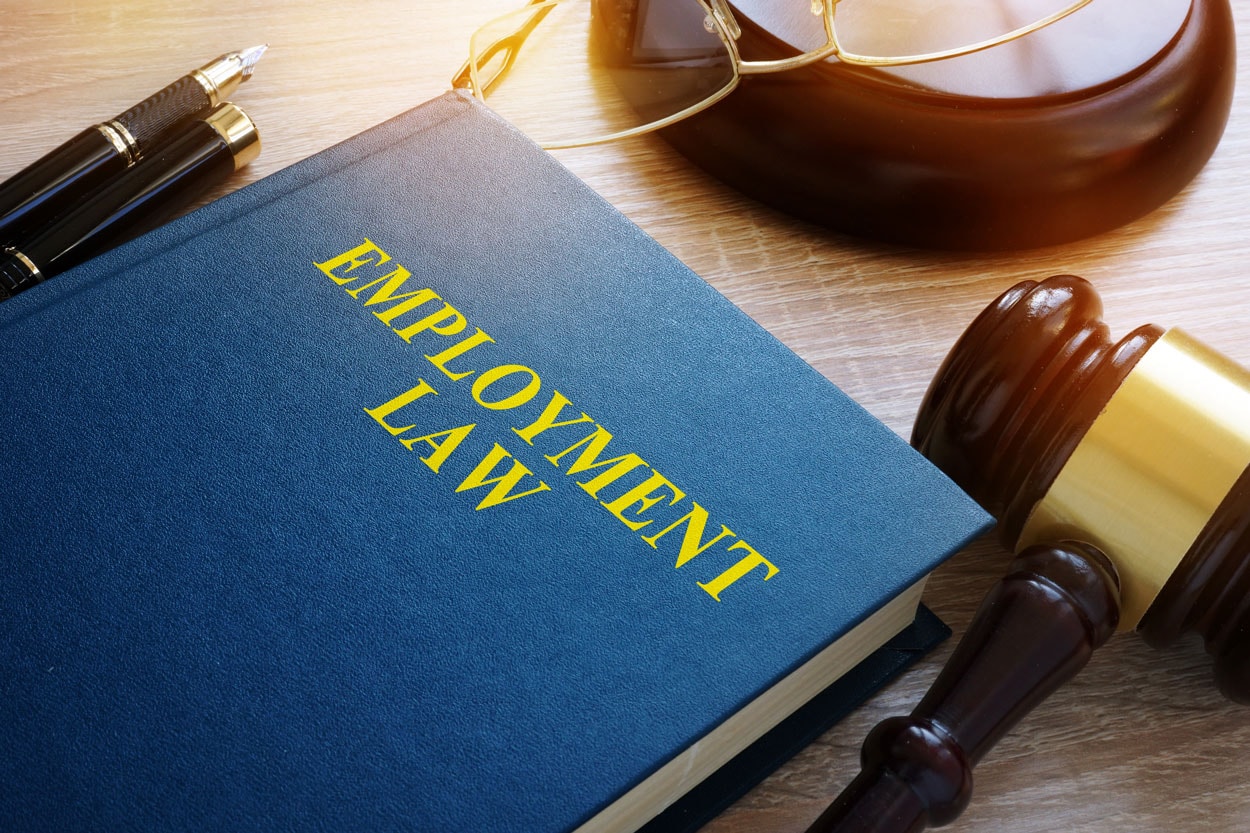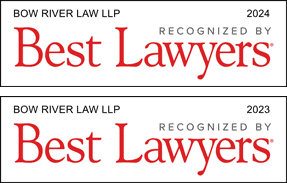- Home
- Services
- Constructive Dismissal
- COVID-19
- Discrimination / Human Rights
- Employee Sued by Employer
- Employment Contracts: Drafting / Review / Negotiation
- Employment Policy Drafting / Review
- Fiduciary Obligations
- Harassment / Bullying
- Independent Contractors
- Just Cause For Termination
- Lay-Offs
- Non-Competition / Non-Solicitation
- Professional Regulation
- Severance Review / Negotiation
- Union / Labour Law
- Workplace Investigations
- Wrongful Dismissal / Unjust Dismissal
- About
- Our Team
- Blog
- Call Now: 587-391-7601
- Contact Us
ABKB Rejects Argument that Credibility Prevents Summary Trial

In Zajicek v Intrapac Canada Corporation (Unreported, Jan 8, 2024) (ABKB) (Funk), the Alberta Court of King’s Bench found that summary trial was appropriate in a constructive dismissal case, despite assertions by the employer that there were major issues requiring credibility findings.
The lawyer for the successful party on this application (the employee) was Daniel Hermann.
This case involved summary trials, but it could still be important for use in the new Streamlined Trial process, especially in the employment law context.
This case is currently unreported. However, any lawyer or other professional needing a copy can reach out to me and I am happy to provide it.
Facts
The following were the facts summarized by the ABKB:
- The plaintiff employee Jan Zajicek worked as a mechanic for the defendant IntraPac Canada Ltd. for 26 years when his employment ended
- He sued, alleging constructive dismissal on the basis that he had been suspended without pay
- Zajicek filed an application for summary trial and a supporting affidavit
- The defendant defended and filed an affidavit of its own
- The defendant’s position was that the matter was not suitable for summary trial because the defendant wanted to call several witnesses, the parties had not concluded questioning, and the defendant wanted to cross-examine the plantiff’s witnesses in court
Analysis / Conclusion
Justice Funk of the ABKB succinctly summarized IntraPac’s position as follows:
[44] IntraPac asserts there are significant questions of fact involving credibility and reliability. In particular, it points to the following evidence to argue that a full trial is necessary and that it would be impractical and unreasonable to incorporate the evidence into affidavits:
IntraPac’s relevant policies and procedures, and how they were communicated to Zajicek;
Mr. Zajicek’s employment history, including IntraPac’s use of administrative and disciplinary suspensions when he had taken unapproved absences in the past;
The events surrounding Mr. Zajicek’s report of a workplace injury and unapproved absence from work in December 2020 and January 2021;
IntraPac’s actions to protect Mr. Zajicek’s health and safety, to investigate his reported injury and unapproved absence, and his response to the investigation;
IntraPac’s actions to return Mr.Zajicek to work and his response; and
IntraPac’s intention to maintain and continue Mr. Zajicek’s employment relationship, and his response to those efforts.
The ABKB provided the following direction regarding the test for summary trial:
[52] The test for whether a summary trial is appropriate was set out in N(J) v Kozens, 2004 ABCA 394 at para 40:
1) can the court decide disputed questions of fact on affidavits or by any of the other proceedings authorized by the Rules for a summary trial?
2) would it be unjust to decide the issues in such a way?
[…]
[57] In Kozens, the Court of Appeal, citing from para 14 in Compton Petroleum Corp v. Alberta Power Ltd, 1999 ABQB 42, also set out the means by which the Court can resolve issues and grant judgment in the face of conflicting evidence, at para 42:
an inference can be drawn based on common sense;
deponents of affidavits can be ordered to be cross-examined in front of the judge;
the conflicting evidence does not need to be resolved to decide the case on its merits;
there may be other admissible evidence that will make it possible to find the facts necessary for judgment;
a witness’ evidence may be weighed in terms of consistency with other evidence.
[58] See also ABB Inc v Thurber, 2019 ABQB 203 at para 4; Rice v Shell Global Solutions Canada Inc, 2019 ABQB 977 at para 39, aff’d 2021 ABCA 408; leave to appeal dismissed [2022] SCCA No 35.
The ABKB considered each of the Defendant’s main argument, being that there were issues of credibility on various disputed facts which would require a full trial. The ABKB found that some of the alleged factual disputes were not really in dispute, some were not relevant to constructive dismissal, and some of the others had related documentary evidence. The ABKB found that the remaining credibility issues could be resolved within the summary trial procedure.
The ABKB then went on to consider the Defendant’s second argument, being that summary trial would be unjust because the action was one for constructive dismissal, and because there were issues of duty to mitigate, aggravated damages, and punitive damages. The ABKB noted that the Defendant was essentially arguing that all facts were in dispute and it would be unjust to impose artificial limits on how it presents its case. The ABKB dismissed this argument as follows:
[76] This argument ignores the rationale underlying the alternative processes, the foundational rules of the Rules of Court (see R 1.2 in particular), and the cultural shift embodied in Hryniak and Windsor. If parties, particularly large commercial enterprises, can simply assert it is unfair to limit their choice to present their case in a full trial, the power imbalance between them and a party with fewer resources will limit that party’s access to justice. It is not enough to make bald assertions that it would be unfair; the party objecting to the summary trial must demonstrate, with particularity, why it would be unfair. [underline added]
The ABKB found that the matter was appropriate for summary trial, listing various factors considered as follows:
- The likely damages were around $100,000, which is small enough to favor a summary trial
- The issue was relatively straightforward, and the lack of complexity favored summary trial
- The delay that would be caused by doing a traditional trial was not severely prejudicial to anyone, but there was some prejudice to the Plaintiff because witnesses can become unavailable and their memories can fade, and this favored summary trial
- While there was a dispute around whether all material documents had been provided by the Plaintiff, there was still time to resolve that prior to a summary trial which made this neutral
- While the defendant argued all evidence should be viva voce in trial, this was a bare assertion and a bare assertion that it should be viva voce was not sufficient. This favored summary trial
- The Defendant had not established there was a real possibility that it could bolster its evidence with discovery, which did not support a full trial: “the fact that there might be more evidence uncovered in questioning on further documentary discovery does not represent “a real possibility”.”
- To the extent there were credibility issues, they could be resolved through the summary trial process, including some limited viva voce
The ABKB concluded that the matter was appropriate for summary trial.
My Take
This is an interesting case, because the Court found it was appropriate to proceed by way of summary trial despite that it was a constructive dismissal case where aggravated and punitive damages were sought.
The employer’s position in this case is not an uncommon one. Employers often prefer full trials to the more efficient summary judgment or summary trial procedures, for a variety of reasons which can include:
- Employment law is somewhat stilted in favor of employees, because the cases have recognized that in the employment relationship, employees tend to have weaker bargaining power and to be more vulnerable than employers
- Employers have more sensitivity to precedent than employees – they are not only worried about “this case”, they are worried about what a loss will mean for their dealings with their other employees down the road. In effect, the real $ value of the outcome of a given case tends to be higher to a defendant employer than it is to a plaintiff employee
- Employers tend to have more resources to spend on legal fees
- Everyone thinks they are right, and employers tend to believe that a full trial will give them the highest odds of proving they are right
- Sometimes, employers might be trying to make the case so expensive that the employee runs out of money and has to settle for less than they otherwise would
There is little question that a full trial is more likely to produce the most accurate facts. However, the law has tended to move towards adopting more efficient litigation procedures because the cost of things like questioning and a full trial can make it difficult or impossible for many plaintiffs to get in front of a Judge.
As I noted earlier, the Zajicek case is unreported, but I have a copy and can provide it to any lawyer or other professional that needs it.
Bow River Law provides these regular legal blog articles for the purposes of legal news, education and research for the public and the legal profession. These articles should be considered general information and not legal advice. If you have a legal problem, you should speak to a lawyer directly.
Bow River Law is a team of knowledgeable, skilled and experienced lawyers handling employment law, human rights (discrimination) and labour law matters. Bow River Law is based in Calgary but we are Alberta’s Workforce Lawyers.
Recommended Reading

Constructive Dismissal Consultation Discrimination Employment Contracts Employment Law Severance Workplace Investigations
A Guide to Employment Lawyer Consultation in Calgary, Alberta
When facing employment issues, finding the right legal support is crucial. At Bow River Law, we offer experienced employment law…
10 July 2024

